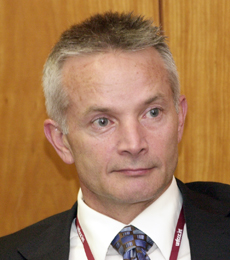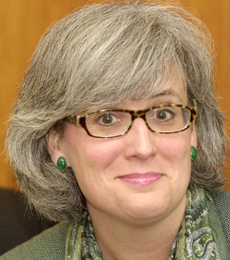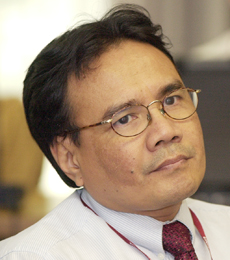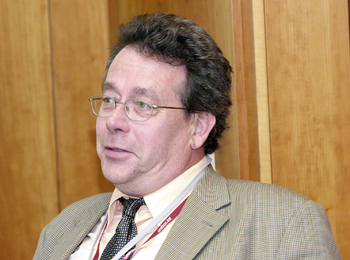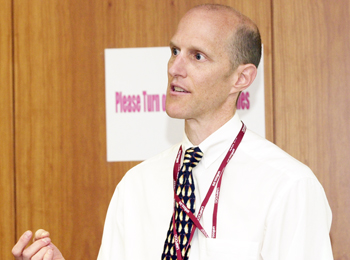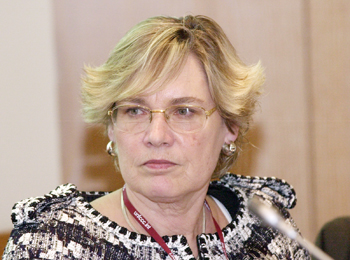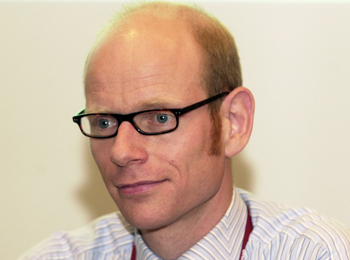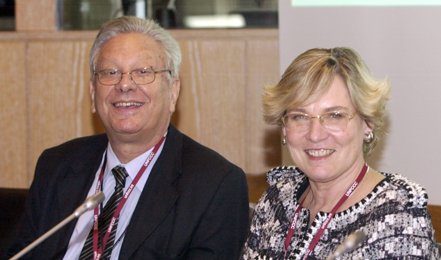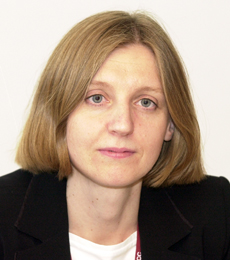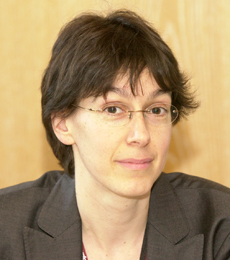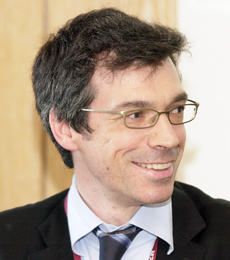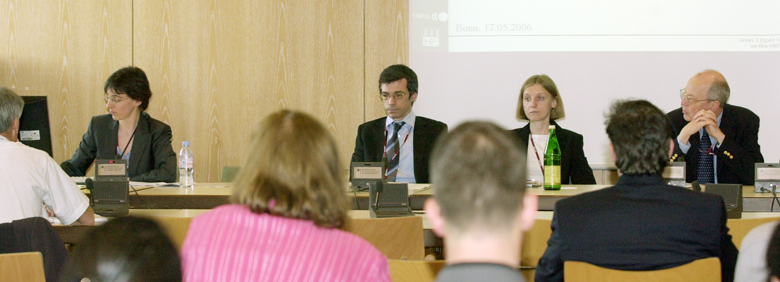 |
||
|
Published by the International Institute for Sustainable Development (IISD)
in cooperation with the UNFCCC Secretariat |
|||
|
Special Report on Selected Side Events at SB 24
|
|||||
| 15-26 May 2006 | Bonn, Germany | |||||
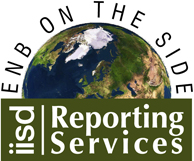 |
|||
 |
|||
Events convened on Wednesday, 17 May 2006
|
“You control climate change” an EU climate change awareness raising Presented by the European Community |
||||
|
Renita Bhaskar, European Commission, introduced the EU’s upcoming climate change awareness raising campaign to be launched across the 25 member States on 9 June, 2006. She described the campaign’s message as “short, simple and catchy”: ‘You Control Climate Change: Turn down. Switch off. Recycle. Walk. Change.’ Bhaskar stated that the campaign was initiated under the sixth European Environment Action Programme 2002-2012, which emphasizes the importance of awareness-raising activities. She added that the campaign ties into Article 6 of the UNFCCC on education, training and public awareness. She listed the campaign’s objectives, namely: improving awareness and understanding of climate change across the EU; spotlighting the proactive role citizens can play in addressing the problem; and informing citizens of small daily changes that make a difference at a collective scale. She illustrated aspects of the campaign, including giant campaign posters, a school programme and an internet portal. She said the television channel MTV is their main partner and that the campaign will be evaluated after the first seven months. Participants discussed, inter alia: the choice of slogan; and the campaign’s length, monitoring, cost effectiveness, and target audience. |
||||
|
|||
|
US climate activities: States, Congress, and an agenda for action Presented by the Pew Center on Global Climate Change |
|||
|
Joshua Bushinsky, Pew Center, noted that states, via governors and legislature, are taking the lead in addressing climate change in the US. He noted that they are responding to multiple motivations, including the desire to develop and market technology to mitigate climate change as well as growing concern regarding climate impacts, particularly in coastal areas. He provided an overview of state and regional initiatives, including the Regional Greenhouse Gas Initiative and a Western Governors’ Association initiative.
Manik Roy, Pew Center, outlined progress in climate change policy by the US Senate and Congress. He highlighted, inter alia: the 2005 Bingaman resolution in Senate and the 2006 Dicks resolution in the House calling for mandatory, market-based programmes to address GHG emissions; the 2006 Domenici-Bingaman Energy Committee hearing on mandatory national climate policy; and the Lugar-Biden resolution related to international climate policy. Vicki Arroyo, Pew Center, described the Center’s “Agenda for Climate Action”, a comprehensive, economy-wide examination of means to “put the US on a climate-friendly path.” She outlined the Agenda’s focus areas: research and development; market-based programmes; reduction of GHG emissions; energy production and use; adaptation; and international engagement. Participants discussed: intensity-based versus absolute emission reduction targets; the Asia-Pacific Partnership on Clean Development and Climate; and the linkage between US domestic policy and international commitments to climate change. |
|||
|
|||
|
Market mechanisms, sustainable development and post-2012 Presented by the International Institute for Sustainable Development |
|||
|
John Drexhage, International Institute for Sustainable Development (IISD), emphasized growing awareness regarding limitations of the CDM. Noting increased interest to reform the CDM, he urged participants to consider how the market can deliver projects that significantly reduce GHG emissions while generating development benefits, or high “development dividends.”
Aaron Cosbey, IISD, discussed the CDM in the current commitment period to the Kyoto Protocol and post-2012. He suggested that the CDM, in its current form, is in effect a tax on governments and firms. He emphasized that investors need certainty regarding the CDM in the post-2012 regime in order to invest in projects and noted that continued use of quantitative targets is a pre-requisite to the CDM’s survival after 2012. Diana Smallridge, Green Capital Advisors, noted that many CDM projects will fail for lack of financing due to the uncertainty of CER delivery and the small volume of CERs which may not justify costs and risks to buyers. She outlined possible solutions to overcome the challenges for financing the development dividend, including: building CDM capacity in host countries to make better use of carbon finance for projects; linking projects with high development dividend potential to national priorities; engaging ODA providers to catalyze CDM projects with high development dividend potential; and reducing CDM transaction costs through bundling of small projects. Brian Dawson, UNDP, outlined UNDP’s experience with and interest in CDM and announced the upcoming release of a UNDP CDM Asessment Report. He suggested that the CDM could deliver sustainable development benefits over time if there is an increase in project number, technology mix and geographical spread. He identified financing and long-term post-2012 market certainty as essential determinants of the future project flow. Daniel Murdiyarso, speaking on behalf of Rewarding Upland Poor for Environmental Services, highlighted the organization’s use of watershed functions as an entry point for carbon sequestration projects. He suggested that market-based mechanisms for the Land Use, Land-Use Change and Forestry sector are at stake and that new mechanisms must be explored. He concluded that payment for environmental services projects may not be able to reduce emissions effectively, unless land tenure issues are secured. Murray Ward, Global Climate Change Consultancy, suggested reframing the mitigation challenge by thinking of climate change as a transformative and innovative business opportunity for the 21st century. He called for more flexible commitment measures along with a policy framework that could mix binding emissions targets and voluntary sector targets, proposed by countries according to their sustainable development priorities. Participants discussed tender processes, sectoral baselines, internal rates of return and investment in CDM projects, and prospects for voluntary markets for emissions reductions. |
|||
|
|||
|
Contributions to climate change – the Brazilian proposal – report of MATCH Presented by the Center for International Climate and Environmental Research |
|||
|
Luiz Pinguelli Rosa, Federal University of Rio de Janeiro, provided an introduction to the modeling and assessment of contributions to climate change (MATCH) process, which aims at assessing methods for calculating the emission contributions of different sources and their impacts on climate change. He introduced two papers that contain MATCH’s current results.
Niklas Höhn, Ecofys, presented the first paper, “On analyzing countries’ contribution to climate change: scientific and methodological choices.” He said the analysis suggests that the impact of policy parameters such as time horizon of emissions, climate change indicators or greenhouse gas mix is greater than the impact of scientific uncertainties. Joyce Penner, University of Michigan, provided an overview of the second paper on examining uncertainties in absolute attribution of climate change using a closure method. She explained that the paper examines uncertainties in emissions inventories, estimates forcing and forcing uncertainty from all other known climate factors, and considers the implications of this uncertainty for predicted global average temperature change and the change associated with 1990-2002 OECD Annex 1 emissions. Höhn noted that the two papers are the first of a series and that future publications could combine the two earlier ones and include other test cases. Participants discussed: robustness of data sets from the 19th century; choice of regional groupings; and possible policy recommendations. |
|||
|
|||
|
New work from the Annex 1 Expert Group Presented by the Organisation for Economic Cooperation and Development |
|||
|
Jane Ellis, Organisation for Economic Cooperation and Development (OECD), presented an update on the current CDM portfolio. She highlighted the increase in number of CDM projects, CERs and small-scale projects as well as the continued dominance of a few countries and sectors in CDM. She introduced an OECD paper that assesses issues relating to “project activities under a programme of activities” under the CDM.
Richard Baron, International Energy Agency, presented institutional and operational concerns with regards to sectoral crediting mechanisms (SCM) for mitigation. He highlighted three SCM options and noted issues relating to international governance measures and additionalities in SCM. Dennis Tirpak, OECD, emphasized the wide range of adaptation terms and concepts available, noted some conflicts and contradictions between these terms and highlighted the need to reach a consensus. Ellina Levina, OECD, presented a paper that examines the domestic policy frameworks for the water sector in four countries and assesses how adaptation could be incorporated in these frameworks. Discussion: Participants focused on the nature of SCM buyers and issues relating to setting SCM baselines, the importance of consensus on adaptation definitions, and the merits and demerits of a sectoral approach to adaptation. |
|||
|
|||
|
||
|
Click the above button to go back to our ENB main coverage
|
||
|
|
|
|
|
||
|
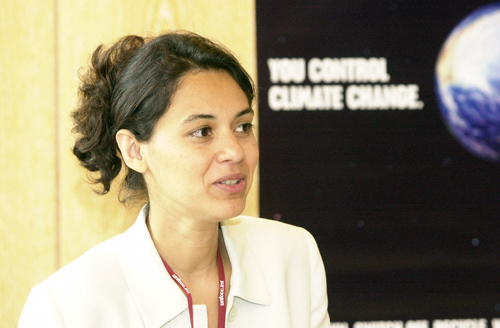
-tn.jpg)
-tn.jpg)
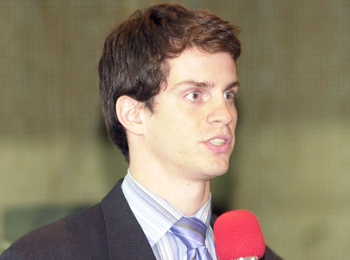
-tn.jpg)
